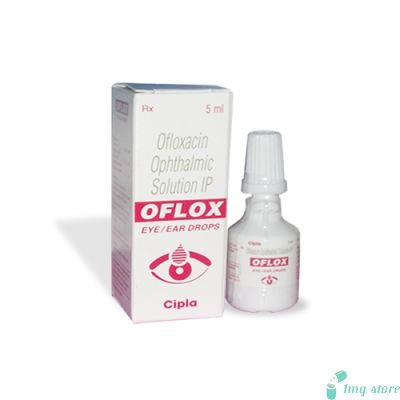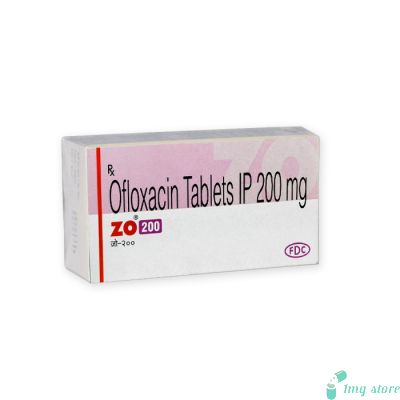Mikacin Injection (Amikacin)
Buy Mikacin Injection (Amikacin), Amikacin marketed under the brand name Mikacin, is a potent aminoglycoside antibiotic used to treat a variety of serious bacterial infections. This injection is known for its effectiveness against Gram-negative bacteria, particularly those resistant to other antibiotics.
What is Mikacin Injection (Amikacin)?
Amikacin, marketed under the brand name Mikacin, is a potent aminoglycoside antibiotic used to treat a variety of serious Bacterial Infections. This injection is known for its effectiveness against Gram-negative bacteria, particularly those resistant to other antibiotics. Amikacin works by inhibiting bacterial protein synthesis, leading to bacterial cell death. This comprehensive guide provides essential information on Amikacin injection, including dosage, uses, potential side effects, precautions, and drug interactions.
Amikacin Dosage Information:
- Standard Dosage: The usual dosage of Amikacin injection is based on the patient's body weight and renal function. For adults, a common dosage ranges from 15 to 20 mg/kg of body weight per day, divided into 2 or 3 equal doses.
- Dosage Adjustment: Patients with impaired renal function require dosage adjustments to prevent toxicity. A reduction in dosage or an extended dosing interval is recommended to avoid excessive drug accumulation.
- Missed Dose: If a dose is missed, it should be administered as soon as possible. However, if it's close to the next scheduled dose, the missed dose should be skipped to prevent double dosing.
- Amikacin Injection overdose: Overdosing on Amikacin can lead to severe toxic effects, including kidney damage and hearing loss. If an overdose is suspected, medical attention should be sought immediately.
- Duration of Treatment: The duration of treatment with Amikacin injection varies based on the type and severity of the infection. It is essential to complete the full course as prescribed by the healthcare provider.
Amikacin Injection Administration:
Amikacin injection is typically administered as directed by a healthcare professional. It can be injected into a muscle or a vein through an IV. Proper technique and hygiene are crucial for safe administration. Patients may receive guidance on self-administration if suitable. Always follow the prescribed dosage and instructions provided by your doctor.
Amikacin Injection Alternatives:
In cases where amikacin is not suitable or desired, alternatives may include other Antibiotics like gentamicin, tobramycin, or fluoroquinolones. These alternatives should be chosen based on the specific infection, the patient's medical history, and the susceptibility of the bacteria causing the infection. Consult a healthcare provider for appropriate alternatives.
Amikacin Injection Price:
Visit our website, 1mgstore.com, to check the current price of Amikacin Injection. We offer a convenient platform to access accurate pricing information and make informed decisions about your medication needs. Please note that prices may vary, and it's essential to verify details before making a purchase.
When Using Mikacin Injection (Amikacin), It Is Important To Take Certain Precautions
- Kidney Function: Regular monitoring of kidney function is crucial during Amikacin therapy. Dosage adjustments are necessary for patients with impaired renal function to prevent nephrotoxicity.
- Hearing Assessment: Patients should undergo hearing assessments before and during treatment, especially if high doses or prolonged therapy are anticipated.
- Pregnancy and Breastfeeding: Amikacin should only be used during pregnancy or breastfeeding if the potential benefits outweigh the risks. Consultation with a healthcare provider is essential.
- Neuromuscular Disorders: Caution is advised in patients with neuromuscular disorders, as Amikacin can exacerbate muscle weakness.
- Allergic History: Individuals with a history of hypersensitivity reactions to aminoglycosides should exercise caution and may require alternative treatment options.
Amikacin injection, under the brand name Mikacin, is prescribed for several medical conditions:
- Bacterial Infections: Mikacin is commonly used to treat severe bacterial infections caused by susceptible organisms. It is especially effective against infections resistant to other antibiotics.
- Hospital-Acquired Infections: This injection is employed to combat infections acquired during hospital stays, including those in the respiratory tract, bloodstream, and urinary tract.
- Meningitis: Amikacin may be utilized in combination with other antibiotics for the treatment of meningitis caused by certain bacteria.
- Cystic Fibrosis: In some cases, Mikacin can be recommended for patients with cystic fibrosis to manage chronic lung infections.
- Neonatal Infections: It may be used in neonatal intensive care units to treat serious infections in newborns.
Crucial Side Effects to Be Observed When Using Mikacin Injection (Amikacin)
- Nephrotoxicity: Amikacin can cause kidney damage, especially when used in high doses or for extended periods. Regular monitoring of kidney function is crucial.
- Ototoxicity: Hearing loss and balance problems are potential side effects, particularly with prolonged use or high doses. This risk is higher in patients with pre-existing hearing issues.
- Neurotoxicity: Rarely, Amikacin can lead to nervous system toxicity, causing numbness, tingling, or muscle twitching.
- Allergic Reactions: Some individuals may experience allergic reactions such as rash, itching, or swelling. Severe allergic reactions (anaphylaxis) are rare but possible.
- Gastrointestinal Distress: Nausea, vomiting, and diarrhea are occasional side effects. Reporting severe or persistent gastrointestinal symptoms to a healthcare provider is important.
Answers to Common Inquiries About Amikacin Injection (Mikacin):
Can Amikacin be used for mild infections?
No, Amikacin is reserved for severe bacterial infections due to its potency. It's not typically prescribed for mild infections that can be managed with other antibiotics.
Is Amikacin safe for pregnant women?
Amikacin should be used during pregnancy only if clearly needed. Consult a healthcare provider to weigh the potential benefits against the risks before considering its use.
Can Amikacin treat viral infections?
No, Amikacin is an antibiotic effective against bacterial infections only. It does not have any activity against viruses and should not be used for viral infections.
Is it safe to take Amikacin with herbal supplements?
Caution is advised when combining Amikacin with herbal supplements, as potential interactions are not well-studied. Consult a doctor before using any supplements alongside Amikacin.
What should I do if I experience hearing changes during treatment?
If you notice any hearing changes, such as ringing or decreased hearing, while on Amikacin, inform your healthcare provider immediately for further evaluation and guidance.
Significant Drug Interactions that Require Attention For Mikacin Injection (Amikacin)
- Loop Diuretics: Concurrent use of Amikacin with loop diuretics (e.g., furosemide) can increase the risk of kidney damage and hearing loss.
- Neuromuscular Blockers: Combining Amikacin with neuromuscular blocking agents can intensify muscle weakness and respiratory depression.
- Other Nephrotoxic Drugs: Concurrent use of nephrotoxic medications, such as certain antibiotics and antivirals, can enhance the risk of kidney damage.
- Antagonistic Interaction: Amikacin should not be mixed with other antibiotics, particularly beta-lactams (e.g., penicillin), as they can counteract each other's effects.
- Monitoring with Cephalosporins: When used concurrently with certain cephalosporin antibiotics, Amikacin may require closer monitoring due to potential additive toxic effects.
| Manufacturer | : | Aristo Pharma, India |
| Equivalent Brand | : | Amikin |
| Generic Search | : | Amikacin Sulphate |












